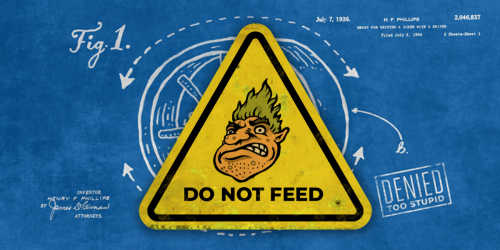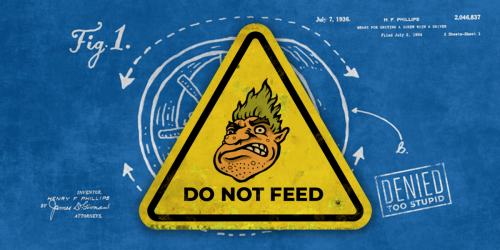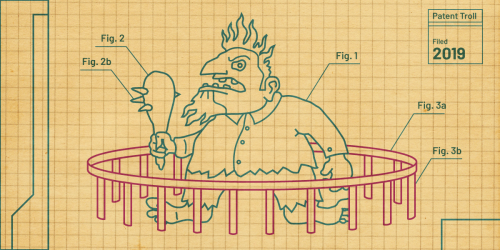The bipartisan Innovation Act is the best bill yet when it comes to fighting patent trolls. This post is the fifth of a series explaining the bill’s various provisions. While the Innovation Act won't fix every problem with the patent system, it includes a powerful set of proposed reforms that—taken together—will significantly reduce the threat of abusive patent trolls.
Join us in supporting the Innovation Act. Take action and contact your member of Congress now.
Customer Suit Exception
End user protection, or what the Innovation Act calls the "Customer-Suit Exception," gives important breathing room to everyday consumers who find themselves on the receiving end of patent litigation. The provision comes in response to a troubling trend patent tolls recently picked up, one where they target end users.
These trolls go after consumers who use widely available products to conduct their businesses efficiently and effectively. Most, if not all, did not develop, manufacture, or sell the allegedly infringing technology. Most, if not all, had no idea that any patent existed that might prohibit how they use those products.
Take for instance Innovatio, the troll who targets those who provide access to Wi-Fi networks in public spaces, like coffee shops and hotels. There's Lodsys, who targets app developers for using technologies to perform in-app upgrades—a feature that companies like Apple and Google provide to those developers. Or the infamous scanner troll, MPHJ Technology, who claims to own the technology covering scan-to-email and demands that companies pay up nearly $1,000 per employee for using it. And we can't forget Personal Audio, the troll who demands licenses from podcasters for, well, podcasting, despite the fact that most of those podcasters use off-the-shelf technology to distribute their podcasts.
The Innovation Act would allow manufacturers and suppliers to step into litigation against their customers. And, more importantly, the case against those customers would be put on hold until the manufacturer or supplier figured it out.
So let's say you're Cisco, and users of your WiFi routers are being accused of patent infringement by a troll. Under the Innovation Act, Cisco would have an easy path to step in and claim that the troll's patent was invalid, or that its routers don't infringe that patent. If Cisco won, all its customers would be off the hook. And, while Cisco made its case, the suits against all the customers would be temporarily called off. (By the way, this really did happen, and Cisco really did try to defend its customers. The Innovation Act, if the law, would have made Cisco's life—and its customers' lives—much easier.)
Posts in this series:
Part Three: Ending Discovery Abuse








